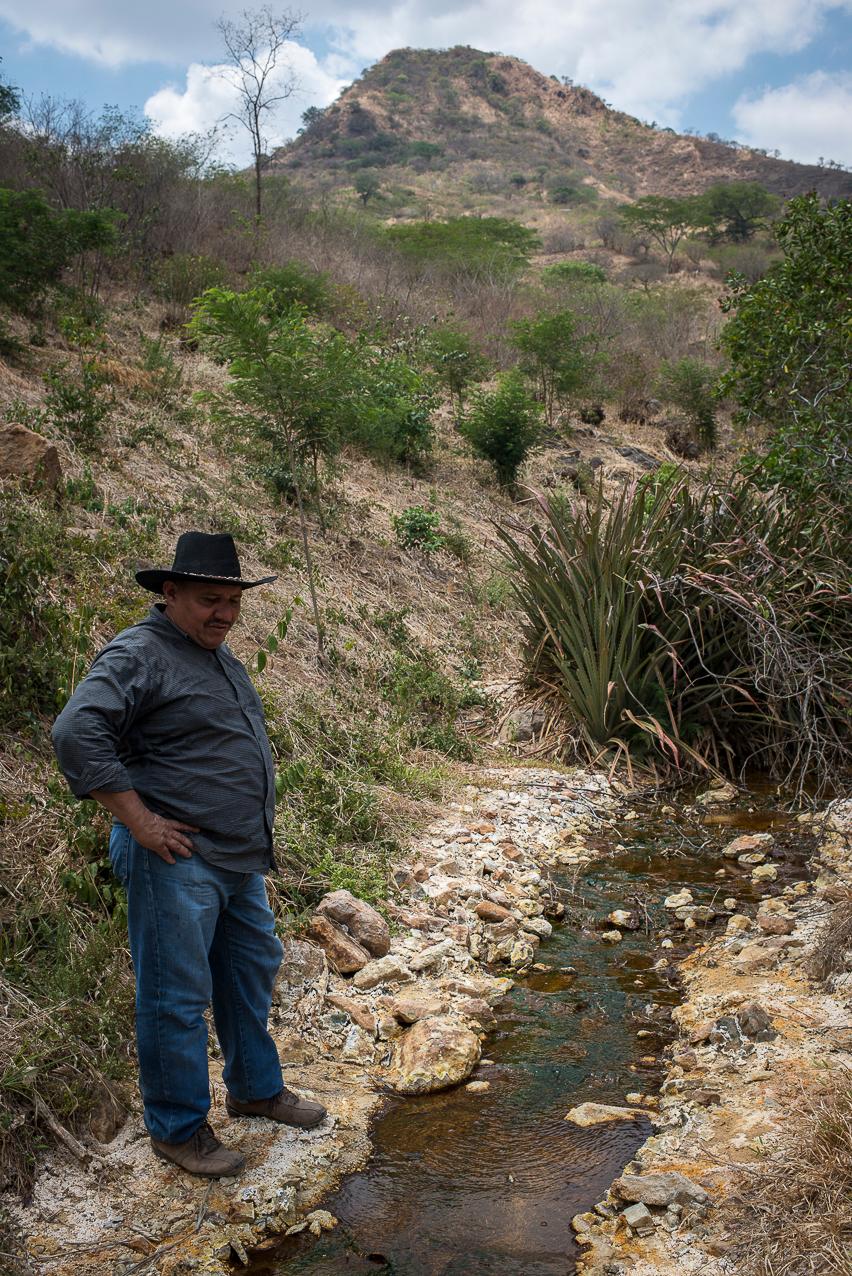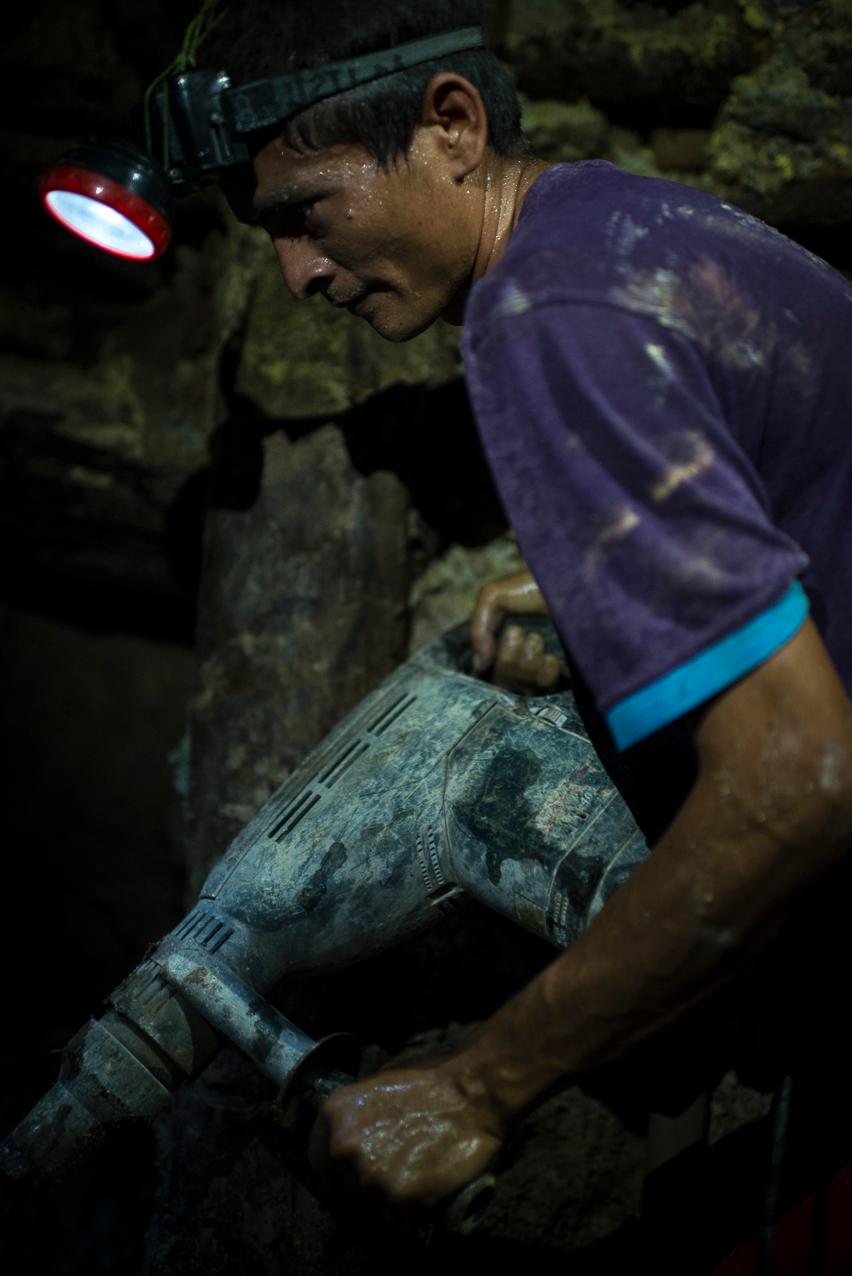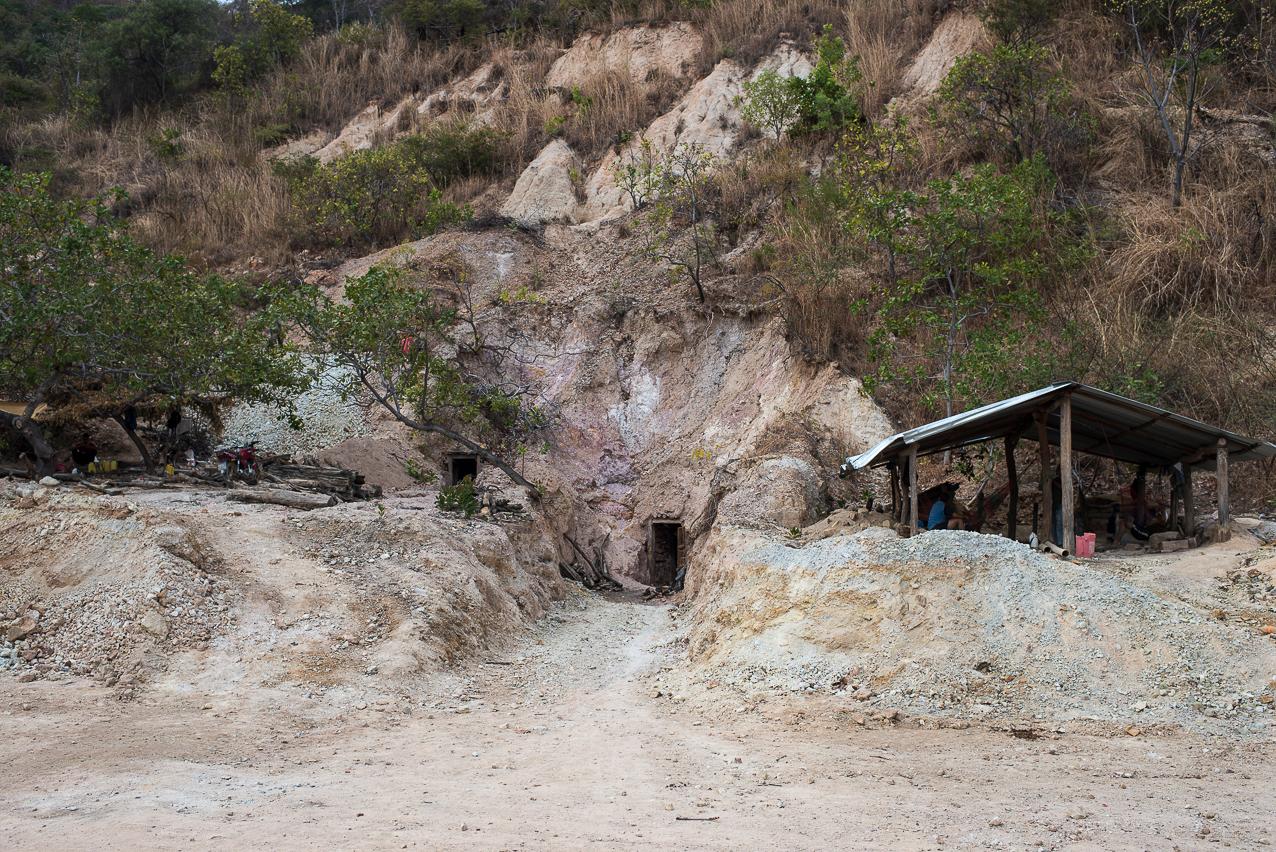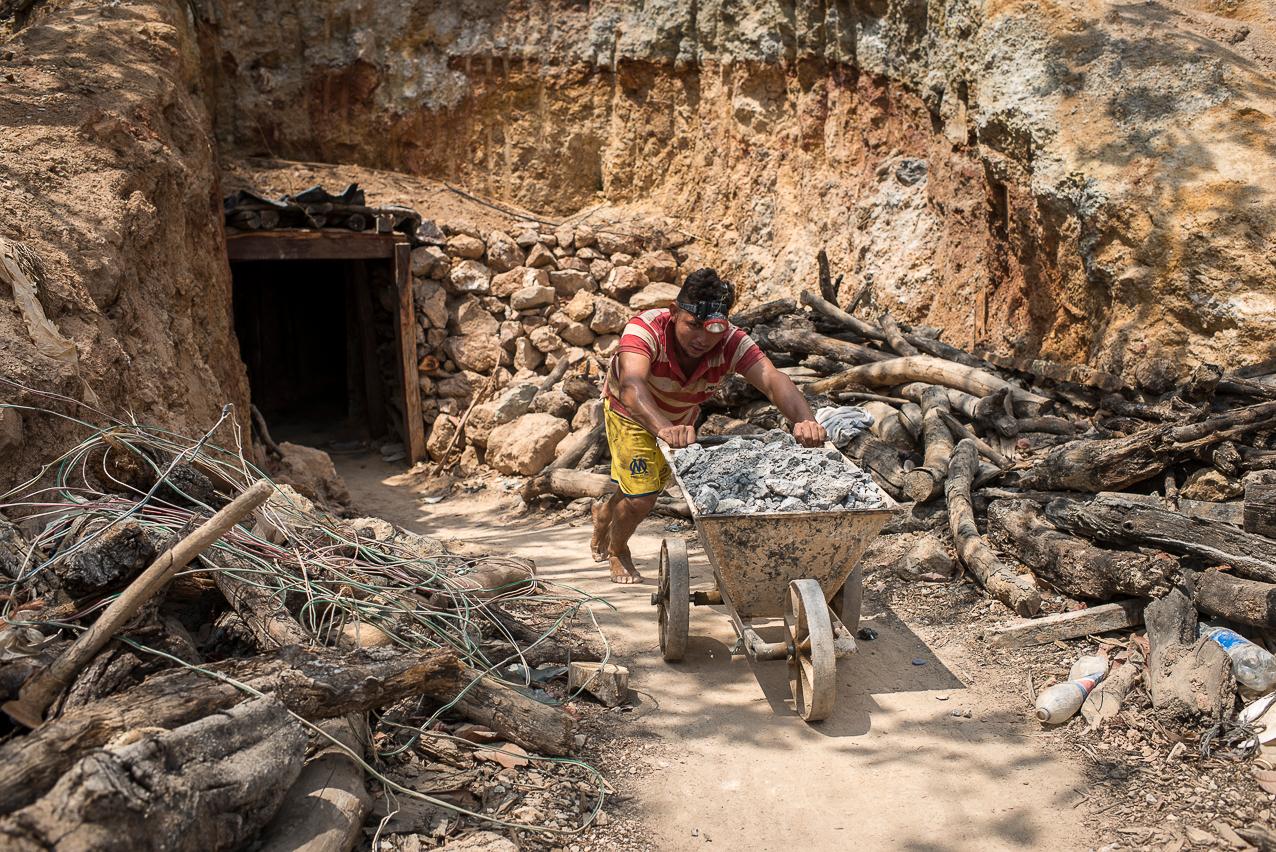At a gold mine in San Sebastian, an artisanal miner leaves the mine where he chipped out stones that will be processed to extract gold.
Fredy Flores wears his black cowboy hat slung low over his forehead. His eyes, barely visible beneath the rim, are only open a slit, which may be a reaction to the glaring sun and pulsing heat — but more likely it's because he’s angry. Flores is an artisanal miner in San Sebastian, a remote El Salvadoran town, and a law passed recently has banned his means of survival.
“Here there is no other source of work for all our families,” Flores says. “Here there is nothing.”
El Salvador become the first country in the world to ban all metal mining in late March. It’s a victory for the majority of the population, which opposed the mining activities. The law came after years of activism from an unusual constellation of actors. Concerned mothers and social groups joined environmentalists, the Catholic Church and even legislators on both sides of the aisle to pass the historic legislation.

It's being hailed as a monumental victory for the environment over big business. Multinational companies conducting metal mining have been blamed for poisoning waterways from the Philippines to Guatemala. Small social movements in El Salvador, often led by concerned mothers, used the pollution in other countries to make a case for what might happen in El Salvador if big companies were allowed to operate metal mines.
The strategy was successful, and they managed to win a moratorium on metal mining in 2008. Vidalina Morales was one of the activists who led that effort. The diminutive mother of five was alarmed when prospecting began in her municipality of Cabañas, and she joined other mothers to try to stop the mining activities. The moratorium was a good first step, she said, “but there was still always the possibility that transnational companies may be able to come to explore.” Now, with the new law, that option is “closed,” Morales said. Which for her is the right outcome.
“Without doubt we’re thrilled because these projects bring more damage than benefits,” Morales says.
It’s also the right outcome for legislators on both sides of the aisle. More than 80 percent support an end to metal mining; even the right-wing ARENA party voted overwhelmingly to support the new rules.
Just about everyone celebrated the momentous law. Everyone, that is, except Fredy Flores and the 600 artisanal mining families in San Sebastian.
Artisanal mining was allowed to continue when the moratorium on big mining was issued in 2008. Artisanal miners are like subsistence farmers. They carve their own mining shafts in the side of the mountain and work for themselves.
Rudi Francisco Soza, 52, has been an artisanal miner since he was 19. “I like working here because I don’t have a boss, I work for myself,” he says. “We don’t have anyone ordering us around.”
Soza and other artisanal miners spend their days excavating rocks from inside the mountain. It’s a tiny operation staffed by a dozen or so dusty, barefoot men. Soza chisels away at mountain innards and then wheels out a barrow of the rocks. He cracks them open and carefully crumbles each one into tiny pieces, washing them as he goes, looking for a hint of yellow — gold.

Much like the early gold panners, there is no guarantee for artisanal miners that they will find the metal they are looking for. Some days they do, “but there are weeks we don’t find anything,” Soza says.
When they find gold, artisanal miners sell it for a set price to a middleman who then sells it up the supply chain. Soza estimates he brings in $30-$40 every couple of days. It’s not a gold-digger's fortune by any means, but it is more than most Salvadorans earn.
Environmentalists criticize the washing part of this process for its use of mercury, which can end up in waterways, but Soza and other artisanal miners dispute that the amount of mercury they use causes any damage.
“There are no bad chemicals here,” Soza says. “We eat fruit growing on these trees right here and none of us has died from it,” he adds.
Why can’t the government just leave them to do their small scale mining, he asks. “If they take away these mines, well, we can thank them for not having anywhere to work.”
Flores also disputes the claim that artisanal miners are poisoning waterways. He wants the world to know that San Sebastian miners are careful and deliberate in how they dispose of mercury.
We pass through many brittle riverbeds. Everything here is dry. We come to a trickling stream. Flores sticks his hands into the water and splashes his face, as proof that it doesn't contain toxins.
“This is the eye of the hurricane right here where they are fabricating lies that we are contaminating the water,” he says.
But the country’s Ministry for the Environment and Natural Resources says 90 percent of El Salvador’s water sources are contaminated due to agricultural runoff and poor sewerage. A local NGO in San Sebastian spent years gathering water samples downstream of where mining had taken place years before. It showed heavy metal levels at 1,000 times what the World health Organization deemed safe. This made people sick.
Flores denies these charges. “We haven’t had any contagious diseases here, we haven’t had any strange illnesses nor people dying young,” he says. “We haven’t had any children born with genetic disorders.”
Back in the halls of power in the capital San Salvador, the concerns of San Sebastian’s subsistence miners are easily countered. Guillermo Mata, a legislator with the ruling leftist FMLN party, says this decision is best for the artisanal miners, even if they don’t know it. “You see a 40-year-old man and he looks 70,” he says. “They are in really bad health.”
ARENA's Martha Evelyn Bartres says her party cares about what happens to the artisanal miners.
“The law established a two-year period for these artisanal miners to adapt, to have the space to look for alternatives as a way to subsist — more technological work, which is not so rural,” Bartres says.
Yet that rings hollow to Soza, back in San Sebastian, who doubts the government will help miners like him find a new job. “I don’t think they’ll ever give us work,” he says. “The government doesn’t even have work for educated people, forget about us."

The reporting for this story was supported by the International Women's Media Foundation as part of its Adelante Latin America Reporting Initiative.
We want to hear your feedback so we can keep improving our website, theworld.org. Please fill out this quick survey and let us know your thoughts (your answers will be anonymous). Thanks for your time!
